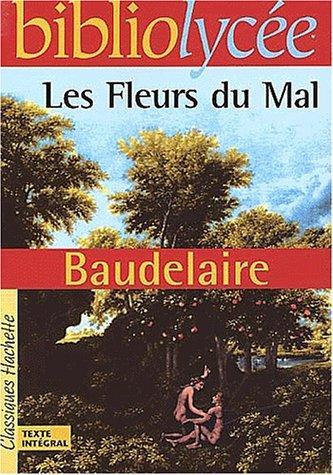Annabulle reviewed Les Fleurs du mal by Charles Baudelaire
Beaux poèmes
4 stars
Très beaux poèmes quoique un peu mélancoliques

mass market paperback, 287 pages
French language
Published Aug. 21, 2002 by Hachette Scolaire.
Les Fleurs du mal (French pronunciation: [le flœʁ dy mal]; English: The Flowers of Evil) is a volume of French poetry by Charles Baudelaire. Les Fleurs du mal includes nearly all Baudelaire's poetry, written from 1840 until his death in August 1867. First published in 1857, it was important in the symbolist —including painting— and modernist movements. Though it was extremely controversial upon publication, with six of its poems censored due to their immorality, it is now considered a major work of French poetry. The poems in Les Fleurs du mal frequently break with tradition, using suggestive images and unusual forms. They deal with themes relating to decadence and eroticism, particularly focusing on suffering and its relationship to original sin, disgust toward evil and oneself, obsession with death, and aspiration toward an ideal world. Les Fleurs du mal had a powerful influence on several notable French poets, including Paul Verlaine, …
Les Fleurs du mal (French pronunciation: [le flœʁ dy mal]; English: The Flowers of Evil) is a volume of French poetry by Charles Baudelaire. Les Fleurs du mal includes nearly all Baudelaire's poetry, written from 1840 until his death in August 1867. First published in 1857, it was important in the symbolist —including painting— and modernist movements. Though it was extremely controversial upon publication, with six of its poems censored due to their immorality, it is now considered a major work of French poetry. The poems in Les Fleurs du mal frequently break with tradition, using suggestive images and unusual forms. They deal with themes relating to decadence and eroticism, particularly focusing on suffering and its relationship to original sin, disgust toward evil and oneself, obsession with death, and aspiration toward an ideal world. Les Fleurs du mal had a powerful influence on several notable French poets, including Paul Verlaine, Arthur Rimbaud, and Stéphane Mallarmé.
Très beaux poèmes quoique un peu mélancoliques
